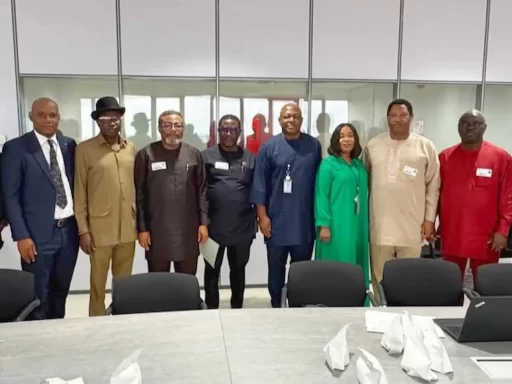NCDMB Under Felix Ogbe Strengthens Nigeria’s Local Content Framework Despite Policy Shifts
By Naija Enquirer Staff
The Nigerian Content Development and Monitoring Board (NCDMB), under Executive Secretary Engr. Felix Omatsola Ogbe, has reinforced Nigeria’s local content architecture despite concerns arising from President Bola Ahmed Tinubu’s Executive Orders issued in March 2024. The Board has repositioned the directives to enhance efficiency, streamline processes, and deepen capacity across the oil and gas value chain.
Executive Orders Complement, Not Override Local Content Law
Speaking at the African Energy Week in Cape Town, the Board clarified that the Executive Orders do not undermine the Nigerian Oil and Gas Industry Content Development (NOGICD) Act. Instead, they support operational efficiency while safeguarding local participation and preventing contract layering. This ensures indigenous firms remain central to industry activities.
Faster Approvals, Less Bureaucracy
Historically, Nigeria’s oil and gas sector has faced long and complex approval processes. Under Ogbe’s leadership, the NCDMB has reduced approval stages, cut administrative red tape, and accelerated project execution timelines. These reforms are intended to boost investor confidence and reduce costs while maintaining strict compliance.
Structured Entry for Global Operators
The NCDMB has strengthened entry requirements for international service companies through the Nigerian Content Equipment Certificate (NCEC), particularly in deepwater projects. This system ensures technology transfer and measurable commitments to local content development.
Major Industrial Infrastructure Projects Near Completion
Major capacity-boosting initiatives nearing completion include the Oil and Gas Parks in Bayelsa and Cross River, the Brass Island Shipyard developed with NLNG, and expanded fabrication yards for offshore infrastructure. These facilities aim to localise key operations and reduce reliance on foreign service hubs.
Human Capital and Technology Development
Under Ogbe, the NCDMB has prioritised highly specialised training in subsea engineering, underwater welding, instrumentation, and emerging tech such as AI and drones. Six Centres of Excellence have been established in universities, training more than 9,000 professionals and advancing innovation toward commercialisation.
Targeted Funding to Boost Local Firms
To support indigenous participation, the Board has expanded financing instruments including the Nigerian Content Intervention Fund, a ₦50bn Community Contractors Fund with loans up to ₦100m, and a $20m Women in Oil & Gas Fund with NEXIM Bank to empower SMEs and women-owned businesses.
Maintaining Compliance and Oversight
The NCDMB continues to enforce strict local content compliance across projects and asset transfers, ensuring operators adhere to the NOGICD Act and preventing any weakening of standards during industry divestments.
Visible Results and Outlook
Nigeria now retains 57% of oil and gas value domestically, up from less than 10% a decade ago. Local fabrication capacity has grown and indigenous firms now compete globally. The Board emphasises the need for policy stability and expanded financing to leverage energy transition opportunities in renewables and digital energy.
In summary, the NCDMB under Engr. Ogbe has strengthened Nigeria’s local content system through streamlined regulation, infrastructure development, and workforce expansion securing the NOGICD Act’s place at the centre of national energy strategy.
Source:Vanguard







